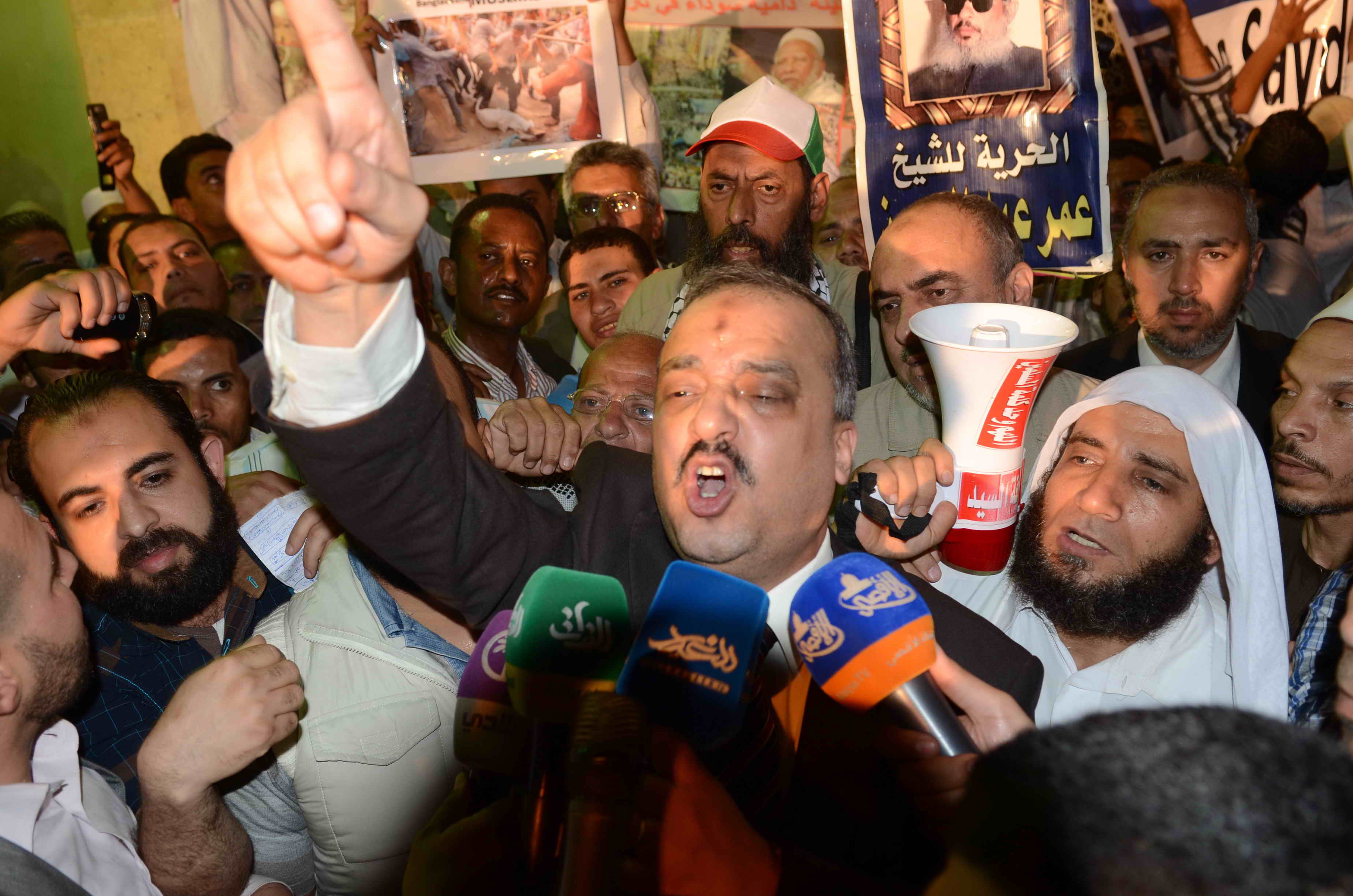Issuing the proposed draft of the Terrorism Law would see the complete reinstatement of the police state that reigned over the country during the era of ousted President Hosni Mubarak, a group of non-governmental organisations warned on Thursday.
In a joint statement signed by 20 NGOs, the organisations widely condemned the current text of the proposed law, drafted by the Ministry of Interior and referred to Prime Minster Hazem El-Beblawi’s cabinet for discussion. Privately owned Al-Masry Al-Youm published the draft law on Sunday.
“The state became addicted to oppressive, security reactions to acts of terrorism during [Mubarak’s] 30 years [in power]”, the statement read. “In the meantime, its attitude was lax towards adopting economic, social, cultural and media policies that could address terrorism.”
The NGOs pointed out that terrorism flourished during the late years of Mubarak’s rule, when the Sinai Peninsula gradually became a haven for armed terrorist groups. They added that the Supreme Council of the Armed Forces (SCAF), which ruled Egypt after Mubarak for a year and a half, as well as ousted President Mohamed Morsi were both responsible for the deterioration of the security situation in Sinai.
The signatory organisations described the draft law as a “setback” from articles of the draft law promised by Mubarak’s Prime Minister Ahmed Nazif before the 25 January Revolution in 2011.
The organisations stated that the explanatory memorandum submitted by Ministry of Interior with the draft law is similar to the reasons Mubarak’s regime resorted to when passing its “exceptional” law. They added that the original Terrorism Law, issued in 1992, failed to combat terrorism; it only endorsed systematic oppression of political activists and civilians.
The signatory organisations criticised the “wide definition” of terrorism adopted in Article 2 of the draft law, giving examples such as “serious breach of public order”, “endangering society’s safety and security”, “stalling authorities” and “subjecting citizens’ lives, freedoms and rights to danger”. They warned that such language would allow the application of the law against “legitimate acts”.
“The main goal of the Terrorism Law in its current draft is to restrict political movements and civil society organisations, and not to combat terrorism,” the statement read.
The organisations condemned Article 13 of the draft law. The article states that establishing, assuming a leading role in and/or managing an organisation, association or group which aims to stall the constitution or the laws or harm “national unity” by any means is a crime punishable by imprisonment. The organisations warned that this definition could apply to people or organisations peacefully calling for constitutional and legal reform or combating religious discrimination.
The draft law would also crackdown on freedom of expression and media freedoms, the organisations warned. They highlighted Article 21, which states that the act of “directly or indirectly” promoting a terrorist organisation or act, whether spoken or written, in any publishing medium or through internet websites is a crime punishable by up to five years in prison. If the act is to “promote terrorism” within places of worship or security institutions, the punishment could reach ten years in prison.
Article 27 stated that creating websites to promote beliefs and thoughts calling for violence or force is a crime punishable by at least five years in prison. The punishment also applies to those who create websites aiming to “misguide” security and judicial authorities regarding terrorist crimes.
The above punishments are extended to include the users of such websites for similar purposes, according to Article 28. The article also allows the public prosecution to ban these websites.
The organisations described the punishments set forth by the draft law as “disproportionate” with the crimes. They specifically referred to the death penalty, mentioned in eight different articles of the draft law.
The signatory organisations stressed their “utter condemnation” of all acts of armed violence, particularly on the rise since Morsi’s ouster. They nevertheless asserted that combating armed violence requires security confrontations which adhere to international standards and respect human rights, as well as adopting policies that tackle social, political and economic problems.
“The acts of violence practiced by Islamist movements and supporters of the Muslim Brotherhood escalated in the wake of the excessive use of force in dispersing their sit-ins,” the statement read adding that the forcible dispersal of the sit-ins used “means entirely disproportionate with the … arms a group of them possessed.”
The signatory organisations called for revising the legal stance of thousands of detainees preventively incarcerated since Morsi’s ouster for their political affiliation or for being suspects of certain crimes without any tangible proof of their involvement those crimes.
The NGOs stressed that the security apparatuses’ ability to combat acts of violence and terrorism requires prioritising the reform of such organisations. They added that ending impunity in crimes committed by security forces would help implement accountability and therefore improve the performance of security apparatuses in combatting terrorism.
“Justice is indivisible,” the statement, read. “Punishing violent actors cannot be fruitful as long as security forces are not punished for their crimes.”
The 20 signatory organisations included: the Egyptian Initiative for Personal Rights, the Arab Network for Human Rights Information, the Association for Freedom of Thought and Expression, the Egyptian Centre for Economic and Social Rights, the Arab Penal Reform Organisation and the Hisham Mubarak Law Centre.
